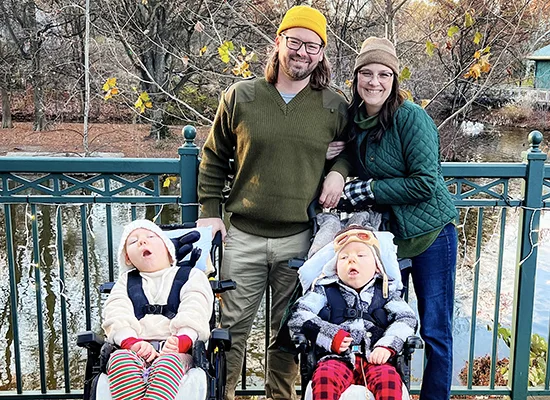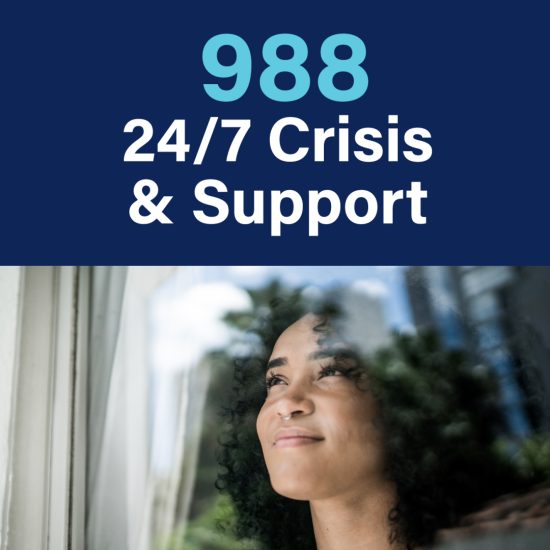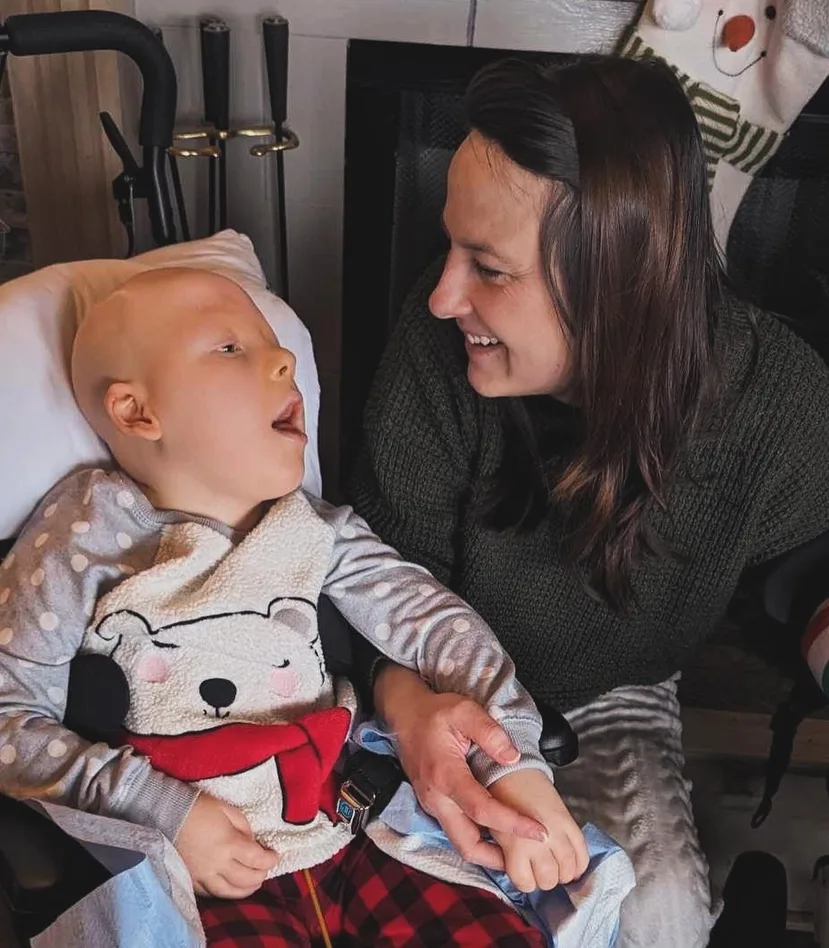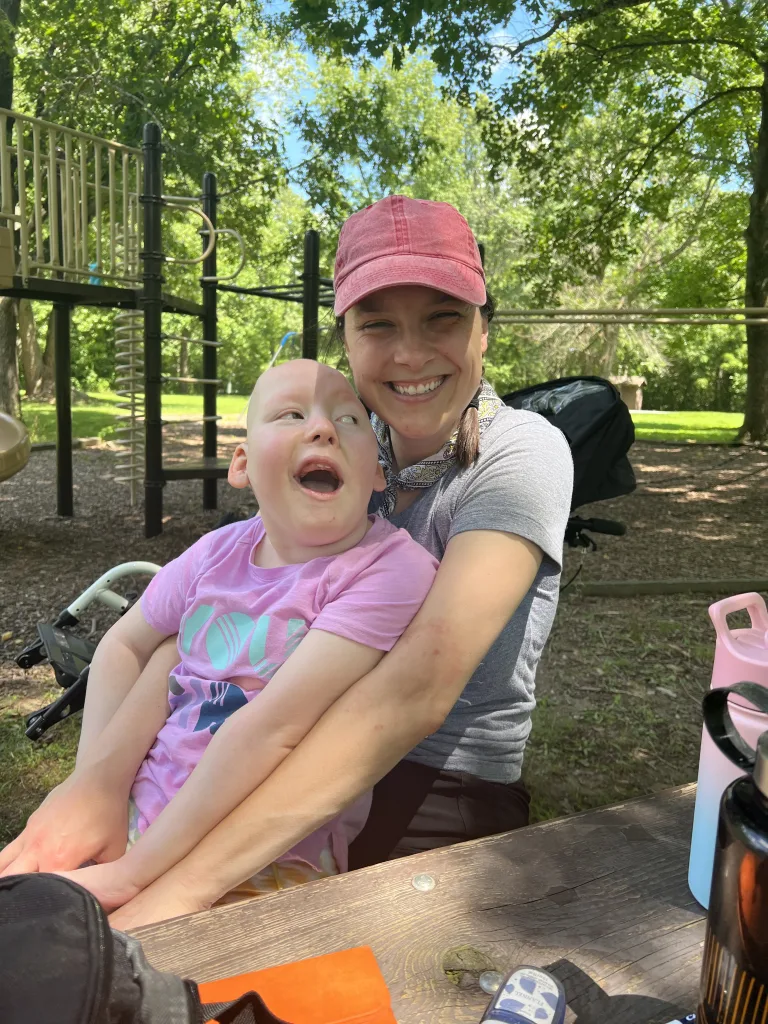DSCC’s New Home Care Family Outreach Associate is Available to Support Families

Our Home Care Family Outreach Associate Erica Stearns can offer support, connection and empowerment for DSCC families caring for loved ones with complex medical needs.
We understand that caring for a loved one with complex medical needs can pose unique and sometimes unexpected challenges for families.
We are excited to introduce a new Home Care Family Outreach Associate (HCFOA) on our team who understands these challenges and can provide heartfelt support.
With lived experience as a patient, parent and caregiver, our HCFOA can recognize shared experiences and guide families through the complexities of multiple systems of care.
Our HCFOA also works to create a sense of community for caregivers within the Division of Specialized Care for Children (DSCC). In this community, families can feel supported, empowered and more confident in their caregiving journey.
Erica Stearns recently joined DSCC as our first HCFOA. She is the proud parent of two children, Margot and Caratacus, who have been enrolled in the Core and Home Care programs since 2016. They reside in southern Illinois and enjoy the beauty of the Shawnee National Forest.
Erica also serves as the co-chair of DSCC’s Family Advisory Council. You can learn more about Erica, her family and her caregiving journey in The Stearns Family Story.
As our HCFOA, Erica works hand-in-hand with families and caregivers to:
- Create trusting partnerships
- Offer tailored support in addition to the care coordination services they receive from DSCC
- Provide essential caregiver resources
Erica helps ensure that caregivers are equipped with the knowledge and skills they need to advocate for their children and navigate complex systems of care. She can help support your family as you navigate:
- Adjusting to a new norm
- Needing support for your child/loved one’s medical needs and increased level of care
- Looking for guidance on what to expect
- Wanting to connect with other families
Families can request to connect with Erica in several ways. You can ask your DSCC care coordination team to refer you to the HCFOA. You can also email a request to speak with Erica at DSCC-FamilySupport@uic.edu.
For more information about the HCFOA and Erica, please visit our Home Care Family Outreach page.
New Nationwide Three-Digit Mental Health Crisis Number

Individuals facing mental health crises can call 988 anytime for help and life-saving services
Starting on July 16, a simple three-digit number will connect anyone in the United States to the National Suicide Prevention Lifeline (also called the Lifeline).
The new 988 dialing code will help people facing mental health crises immediately connect to individuals who are specially trained to respond to such situations. It is available for calls (multiple languages) and text or chat (English only).
The Lifeline is free, confidential and available 24 hours a day, seven days a week.
Lifeline crisis counselors understand what callers are going through and know what local resources might make a difference. Anyone who needs support for a suicidal, mental health and/or substance use crisis may dial 988.
The new 988 number aims to strengthen efforts to transform crisis care nationwide. It will serve as a universal entry point so that no matter where someone lives, they can reach a trained crisis counselor who can help.
According to the Centers for Disease Control and Prevention, one in five Americans will have a mental illness in any given year.
The Substance Abuse and Mental Health Services Administration (SAMHSA) reports that in 2020 the United States had one death by suicide about every 11 minutes. Suicide is also a leading cause of death for people ages 10 to 34 years. Additionally, more than 100,000 individuals died from drug overdoses from April 2020 to 2021.
You can learn more about how 988 works and the support it provides on the 988 Frequently Asked Questions page.
This fact sheet also explains the basics about 988. (You can also see the fact sheet in Spanish.)
The current Lifeline phone number of (800) 273-8255 will remain available to people in emotional distress or suicidal crisis, even after 988 is launched.
Individuals may also continue to text the Crisis Text Line (text HOME to 741741). Both offer free, confidential help around the clock, 365 days a year.
You can also visit our online Resource Directory for more mental health services and support.




